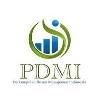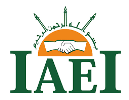- Focus and Scope
- Section Policies
- Peer Review Process
- Open Access Policy
- Archiving
- Publication Ethics
- Become a Reviewer
- Authorship
- Peer Review Guidelines
Focus and Scope
Journal of Management and Business Innovations (JOMBI) is a peer reviewed journal that publishes original research, review articles and book reviews on all areas of developments in fields related to management and business innovations.
The scope of JOMBI’s Journal are:
- Aim to link the research and practice of innovation management
- Focus on the management and firm levels of analysis, rather than policy or sector issues
- Adopt an inter-disciplinary, multi-functional problem-oriented approach
- Integrates management of technological, organizational and market innovation
- Technology Entrepreneurship/New Technology Start-Ups
- Technology and Innovation Marketing
- Management of Innovation and Technology
- Management of Emerging/Disruptive Technologies
- New Product/Process Development
- Innovation in currencies
Section Policies
Articles
Peer Review Process
If the content and format of the submitted essay are seen as appropriate by the editors, the paper will then be sent out for 'blind review' by independent referees. Revisions may be required in the light of referees' comments before a decision is made to accept or reject the paper. All paper sent back to the authors for revision should be returned to the editor without delay. Revised articles can be sent to the editorial office through the Online Submission Interface. The revised manuscripts returned later than three months will be considered as new submissions.
Reviewers are asked to evaluate a manuscript for:
- Originality and significance of contribution. Is the manuscript in congruence with the mission of the journal?
- Interest to research community and/or practitioners. How useful is the material to the field?
- International relevance.
- Coverage of existing literature. Does the literature review contain relevant information in support of the article?
- Satisfactoriness of methodology, analysis, and comprehension. Does the article contain a detailed explanation of research methods and procedures?
- Clear, concise, and jargon-free writing. Does the article clearly state the issues being addressed?
- Organizational structure. Is the article clearly organized in a logical fashion? Are the author’s conclusions supported by the research?
Open Access Policy
This work is licensed under a Creative Commons Attribution 4.0 International License.
- All JOMBI articles are published under a Creative Commons Attribution License (see each article for the exact CC BY version used). With this license, Authors retain copyright, but allow any user to share, copy, distribute, transmit, adapt and make commercial use of the work without needing to provide additional permission, provided appropriate attribution is made to the original author or source.
- By using this license, all JOMBI articles meet or exceed all funder and institutional requirements for being considered Open Access.
- Authors cannot use copyrighted material within their article unless that material has also been made available under a similarly liberal license.
Archiving
This journal utilizes the LOCKSS system to create a distributed archiving system among participating libraries and permits those libraries to create permanent archives of the journal for purposes of preservation and restoration. More...
Publication Ethics
- JOMBI adheres to the prevailing industry standards and procedures for investigating publication ethics.
- JOMBI does not allow dual publication (the same material published twice in the peer reviewed literature), or dual submission (the same material simultaneously submitted to more than one journal).
- Specifically, JOMBI does not tolerate plagiarism, data or figure manipulation, knowingly providing incorrect information, copyright infringement, inaccurate author attributions, attempts to inappropriately manipulate the peer review process, failures to declare conflicts of interest, fraud, and libel. This list is not exhaustive - if there is uncertainty of what constitutes such actions, then more resources may be found at the Committee on Publication Ethics (COPE), the Council of Science Editors (CSE), or the World Association of Medical Editors (WAME).
- JOMBI will rigorously enforce our standards, and follow up on any transgressions. In extreme cases, this may call for individuals to be reported to their institutions and/or for manuscripts to be retracted.
DUTIES OF REVIEWERS
Promptness
In case, any reviewer feels that it is not possible for him/her to complete the review of the manuscript within the stipulated time then the same must be communicated to the editor so that the same could be sent to any other reviewer.
Confidentiality
Information regarding manuscripts submitted by authors should be kept confidential and be treated as privileged information.
Standards of Objectivity
Reviews should be conducted objectively. There shall be no personal criticism of the author. Reviewers should express their views clearly with supporting arguments.
Acknowledgement of Sources
Reviewers should identify relevant published work that has not been cited by the authors. Any statement that had been previously reported elsewhere should be accompanied by the relevant citation. A reviewer should also call to the Editor in Chief's attention any substantial similarity or overlap between the manuscript under consideration and any other published paper of which they have personal knowledge.
Conflict of Interest
Reviewers should not review manuscripts in which they have conflicts of interest resulting from competitive, collaborative, or other relationships or connections with any of the authors, companies, or institutions connected to the papers.
DUTIES OF EDITORS
Decision on the Publication of Articles
The Editor in Chief of Mumtaz is responsible for deciding which of the articles submitted to the journal should be published. The Editor in Chief may be guided by the policies of the journal's editorial board and subjected to such legal requirements regarding libel, copyright infringement and plagiarism. The Editor in Chief may confer with other editors or reviewers in making this decision.
Review of Manuscripts
The Editor in Chief must ensure that each manuscript is initially evaluated by the editor/co-editor, who may make use of appropriate software to examine the originality of the contents of the manuscript and after passing this test, the manuscript is forwarded to two referees for blind peer review and each of whom will make a recommendation to publish the manuscript in its present form or to modify or to reject the same. The time required for each review stage is at least a month after the reviewer states willingness (each article has a different review stage, depending on the quality of the article). If the article is of very good or very poor quality, it is possible to get a decision faster.
Disclosure and conflicts of interest
Unpublished materials disclosed in a submitted manuscript must not be used by anyone who has a view of the manuscript in his or her own research without the express written consent of the author.
Fair play
Manuscripts shall be evaluated solely on their intellectual merit without regard to author's race, gender, sexual orientation, religious belief, ethnic origin, citizenship, or political philosophy.
Confidentiality
The Editor in Chief/editors and any editorial staff must not disclose any information about a submitted manuscript to anyone other than the corresponding author, reviewers, potential reviewers, other editorial advisers, and the publisher.
DUTIES OF AUTHORS
Reporting standards
Authors of reports of original research should present an accurate account of the work performed as well as an objective discussion of its significance. Underlying data should be represented accurately in the paper. A paper should contain sufficient detail and references to permit others to replicate the work. Fraudulent or knowingly inaccurate statements constitute unethical behaviour and are unacceptable.
Data Access and Retention
Authors may be asked to provide the raw data in connection with a paper for editorial review, and should be prepared to provide public access to such, if practicable, and should, in any event, be prepared to retain such data for a reasonable time after publication.
Originality and Plagiarism
Authors should ensure that they have written entirely original works, and if the authors have used the work and/or words of others this must be appropriately cited or quoted.
Multiple Publications
An author should not in general publish manuscripts describing essentially the same research in more than one journal or primary publication. Submitting the same manuscript to more than one journal concurrently constitutes unethical publishing behaviour and is unacceptable.
Acknowledgement of Sources
Proper acknowledgement of the work of others must always be given. Authors should cite publications that have been influential in determining the nature of the reported work.
Authorship of the Paper
Authorship should be limited to those who have made a significant contribution to the conception, design, execution, or interpretation of the reported study. All those who have made significant contributions should be listed as co-authors. Where there are others who have participated in certain substantive aspects of the research project, they should be acknowledged or listed as contributors.
Disclosure and Conflicts of Interest
All authors should disclose in their manuscript any financial or other substantive conflicts of interest that might be construed to influence the results or interpretation of their manuscript. All sources of financial support for the project should be disclosed.
Fundamental Errors in Published Works
When an author discovers a significant error or inaccuracy in his/her own published work, it is the author's obligation to promptly notify the journal editor or publisher and cooperate with the editor to retract or correct the paper.
Become a Reviewer
Thank you for your interest in becoming an reviewer. As an reviewer, you have the valuable opportunity to review some of the most advanced scholarly research papers in the field. The overall success of a refereed journal is dependent on quality and timely reviews. As such, ad hoc reviewers are appointed to serve for one year. Upon completion of this term, ad hoc reviewers will have the potential to be promoted to a full editorial review board member. This promotion will be determined on the timeliness and quality of the reviews received. Please send your detail CV to jombi@uinsu.ac.id
Authorship
Anyone identified as an author must have made a substantial intellectual contribution to the research and to the writing of the article. They must be willing to take a shared responsibility in the research and in the article and approve the final version to be published. Anyone who does not fulfil these criteria but has contributed to either the research or the writing of the article should be acknowledged and thanked in the “Acknowledgements” section at the end of the article.
Any changes to authorship either during the peer review process or after acceptance must be confirmed by all named authors, and a reason for any addition/removal provided to the Editor-in-Chief.
Information about article preparation and how to submit can be found Guidelines for Authors
Peer Review Guidelines
Peer reviewers’ comments and recommendations are an essential guide to inform the editor’s decision on a manuscript. Peer review ensures that manuscripts receive unbiased critique and expert feedback, allowing authors to improve their manuscript and therefore high-quality scientific research and reviews to be published. It also helps the readers to trust the scientific integrity of the article and to make informed decisions where peer reviewer comments are available.
After receiving a request to peer review it is essential that peer reviewers respond in a timely fashion, particularly if they cannot do the review, to avoid unnecessarily delaying the process.
Peer reviewers should declare any conflicts of interest (seeking advice from the publisher if they are unsure), and possess sufficient knowledge in the field to perform a thorough assessment of the manuscript. You can find further information on competing interests here.
Peer reviewers must keep any information regarding the identity of the authors and the content of the manuscript confidential.
Peer review comments should be objective and constructive without being of a hostile or derogatory nature.
Further information on ethical peer review issues and conflicts of interest can be found in the COPE guidelines.








